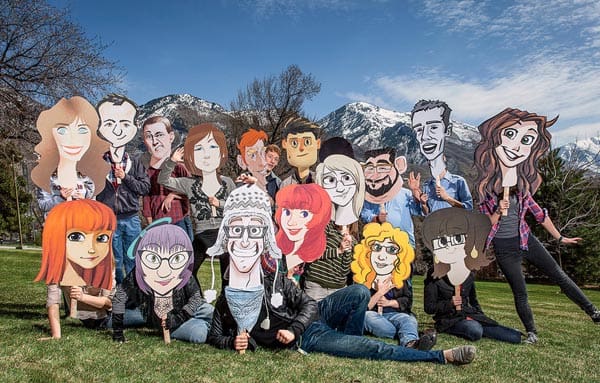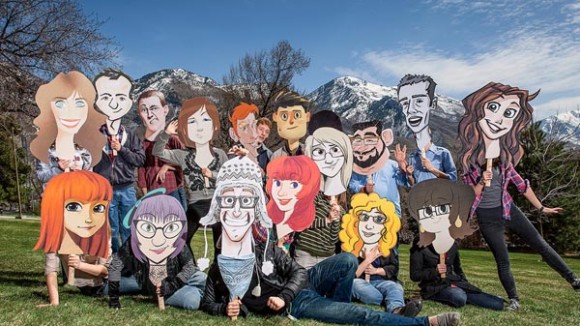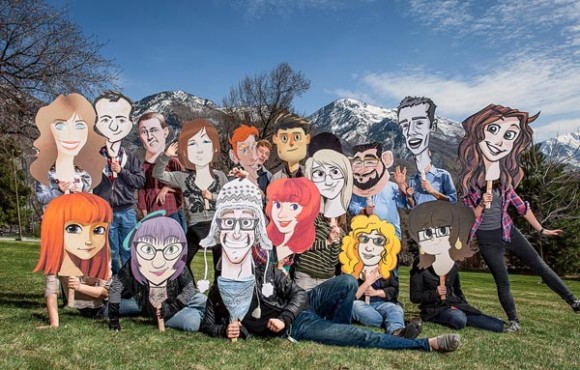

Brigham Young’s Computer Animation Program Profiled in “NY Times”

Last weekend, the New York Times Sunday Magazine published a proile of the computer animation program at Brigham Young University. The school has gained a reputation in the last decade for its student films which are typically produced as group projects by the entire class, and thus exhibit high production values. (Some of these films have been featured on Cartoon Brew in the past.)
The focus of the article is the creative tension that exists between the students who attend the school and their Hollywood aspirations because Brigham Young is a Mormon-owned university run by the Church of Jesus Christ of Latter-day Saints:
Students must regularly attend church services. No sex outside of marriage. (“Live a chaste and virtuous life.”) No alcohol or coffee. (There aren’t even caffeinated sodas in the vending machines.) No swearing. No deviations from the university’s meticulous grooming standards. (“If a yearly beard exception is granted, a new Student ID will be issued after the beard has been fully grown and must be renewed every year by repeating the process.”)
The director of B.Y.U.’s animation program, R. Brent Adams, says that the students who come out of the program have a different approach to filmmaking and life in general than the average fresh-out-of-school film industry pro: “Without being preachy about it, if we can add something to the culture that makes people think about being better human beings—more productive, more kind, more forgiving—that’s what we want to do.”
Curiously, the write-up mentions praise for the school from Disney Animation and Pixar president Ed Catmull, the highest-profile Mormon working in animation, but neglects to mention that he is a Mormon, too. The films that Catmull oversees, such as Wreck-It Ralph, get an ethical pass from at least one student interviewed for the piece:
It wasn’t simply a matter of avoiding sex and violence. (A few times, I heard even Shrek described disapprovingly: too many fart jokes, too much cynicism.) There was, instead, a fixation on whether you walked away from the movie feeling uplifted. That question superseded everything, even the usual genre and age-demographic lines. A senior, Megan Lloyd, told me: “I just saw The Dark Knight. It was wonderful, but it’s just so dark. I didn’t feel better about myself after I saw it. Instead, I felt like, I’m a horrible human being—like all human beings are. Now,” she went on, nearly in the same breath, “contrast that with a film like Wreck-It Ralph. That teaches you: Hey, you can be a better person. Here’s how!”

